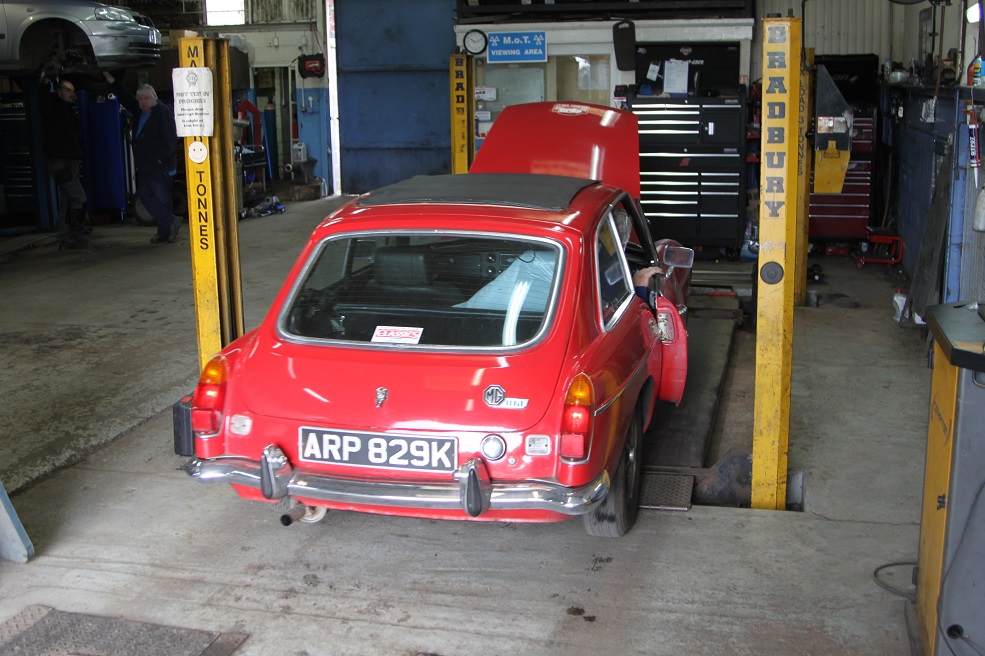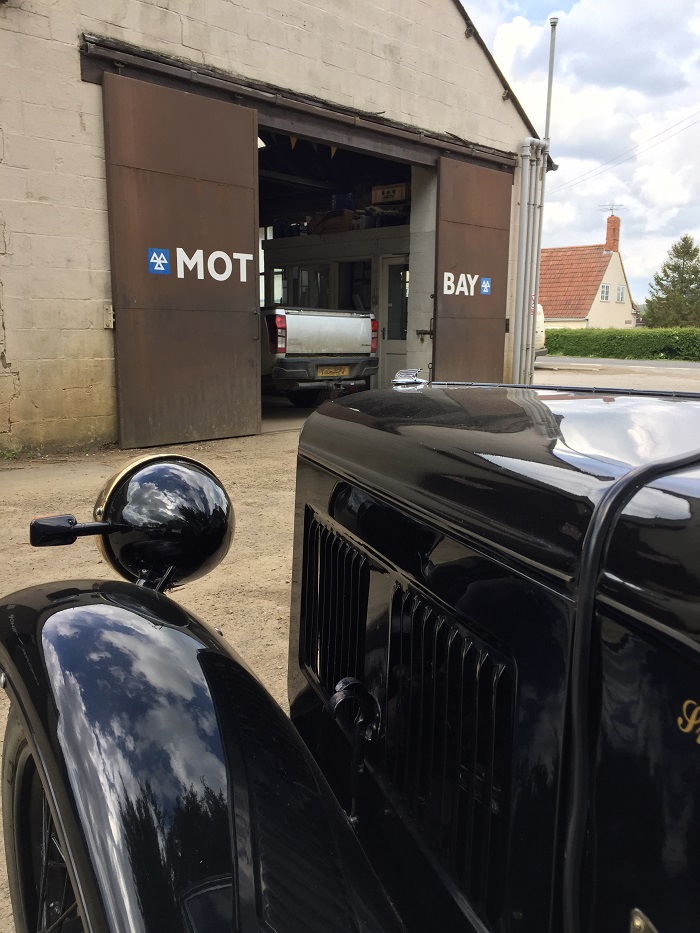Fears surrounding the consequences of MoT exemption continue to mount following new research commissioned by the Federation of British Historic Vehicle Clubs. Its recent 2019 National Cost of Ownership Survey suggests that more than two-thirds of the UK’s historic vehicles used on the road are no longer submitted for an MoT test, leading to concern that an increasing number of unsafe classics are being driven without any form of inspection.
On May 20, 2018 MoT exemption was brought into line with historic vehicle tax (VED), meaning vehicles built more than 40 years ago no longer need to be tested, providing no ‘substantial changes’ have been made in the last 30 years. MoT testing can still be performed on a voluntary basis, but the FBHVC estimates that just 32 per cent of historic vehicles are presented in this way.
The survey question was asked in respect of vehicles that are on the road rather than SORN, thus meaning an estimated 68 per cent of historic vehicles are no longer MoT tested annually. Classic Car Buyer’s own figures sourced from the DVSA last month showed a 54 per cent drop in the amount of historic vehicles submitted for MoTs following the law change, so it’s fair to say the reduction has been significant.
Justification for the exemption was made on the basis that a growing generation of testers are not familiar with the quirks of older vehicles and that the modern MoT is no longer relevant to cars over 40 years old. It was also believed that historic vehicles are generally well maintained and used mostly for short journeys, with the rules clearly stating that you are still obliged to keep the vehicle in a roadworthy condition.
The lack of a mandatory test relies on a system of self-regulation and with no legally-enforced criteria, one owner’s idea of ‘roadworthy’ could differ wildly from another’s. This opens the door to unscrupulous folk who won’t think twice about driving a rot box, or those who aren’t mechanically savvy enough to understand what makes a car unroadworthy.
Even mechanically competent owners may find themselves putting jobs off without an MoT test as a deadline to work to. Those who cover smaller mileages may feel their car only needs an MoT perhaps every two years, but with so many sub-standard and counterfeit parts on the market that could cause problems. We’ve witnessed first-hand how certain rubber components now have a working life that’s a fraction of OE quality, but without a regular inspection, failures could easily be missed.

Horror stories
Specialist garages are already noticing a significant change in vehicle standards and attitudes. We spoke to Mark Greening of Greenings Garage in Alderton, Gloucestershire, which is home to Alderton Austin Services and noted for its popularity with classic car owners. “It’s killed the classic car MoT business for us,” says Mark. “People just don’t have them tested. If they don’t have to then they don’t bother. They think ‘what’s the point in having them done when they’re exempt?’”
But should they have their cars tested? It seems so, as a series of terrifying examples confirm: “People come in with Morris Minors, they’ve got fuel leaks all over the place. We had an MGB in the other day where the entire wire wheel assembly had failed, with the spokes floating all over the place. You could pull the rim six inches either way by hand.”
Brother Keith adds that they had an Austin Seven in recently and the owner asked them to take a look at the brakes as they didn’t feel quite right. When Keith took the wheel off, something clattered to the ground which turned out to be the brake drum in pieces. The shoes had been run down to the metal which had then planed its way through the drum.
Of course, these examples are cars that have actually turned up at a garage for an expert eye to be cast over them. What is much harder to ascertain is the true state of the increasing number of vehicles not presented for MoTs or regular inspections. “You hear horror stories about cars from long-term storage seeing the road, but we don’t see them as typically the sort of person who would have done so isn’t the sort of person that would present cars for test anyway,” said Nick Rawlinson of Barnack Test Centre in Stamford.

“I’ve seen a big drop in the number of pre-1977 MoTs since the exemption came into force – 50 per cent, maybe more,” added Nick. “I can immediately think of six I’ve not seen since even before then. I did 60 in that realm before, but at least 30 have not appeared this year.”
Ex-restorer Simon Downing, who is planning to relaunch classic car inspection network Classic Friendly in the near future, has witnessed a number of scare stories. “I get them all the time,” he explained. “I get photographs sent to me, and I’ve been in garages and seen the cars there, and it’s a case of ‘can you believe this is legal?’.
Simon feels that a lack of legislation inevitably leads to a lack of action. “The human in us means that we won’t do anything until we need to. How does the person that drives a new Audi every day know that his Mk2 Jaguar has a steering rack problem, or there’s a fluid leak onto his brakes? He may just think that’s how classic cars drive. But what happens when he ploughs into a bus stop full of people? It’s scary that there’s no legislation there.”
The worry is that it will take a serious accident for the situation to be reappraised by the government, but the classic car scene certainly isn’t helping itself. MoT exemption often appears in sales listings as a selling point, and with barn finds so popular, we can’t help but feel the notion of rescuing an old car and getting on the road has been romanticised to the detriment of safety.
While we’re aware that many of our readers will be mechanically competent, it’s naïve to think this ability extends to all owners. So what should happen? Should the MoT or some kind of inspection be made mandatory? Or can we carry on as we are?
Our take is that are still plenty of classic-savvy garages out there, as listed on the FBHVC website. By using these, we are not only helping to ensure our classic are safer, but could give the industry a welcome boost too. But what do you think? Email us your thoughts at ccb.ed@kesley.co.uk.







